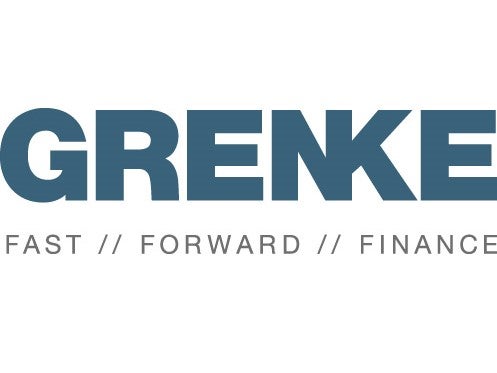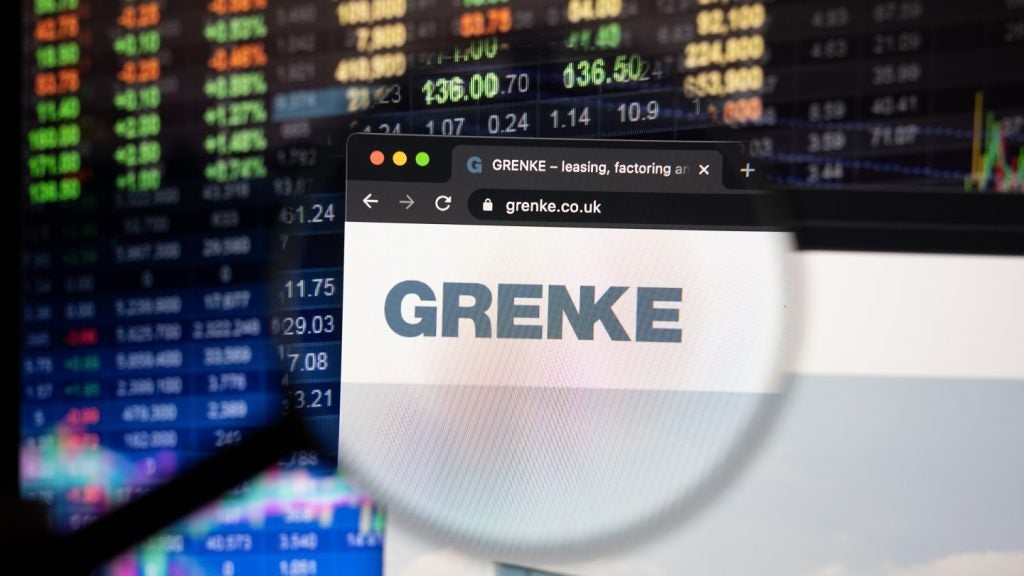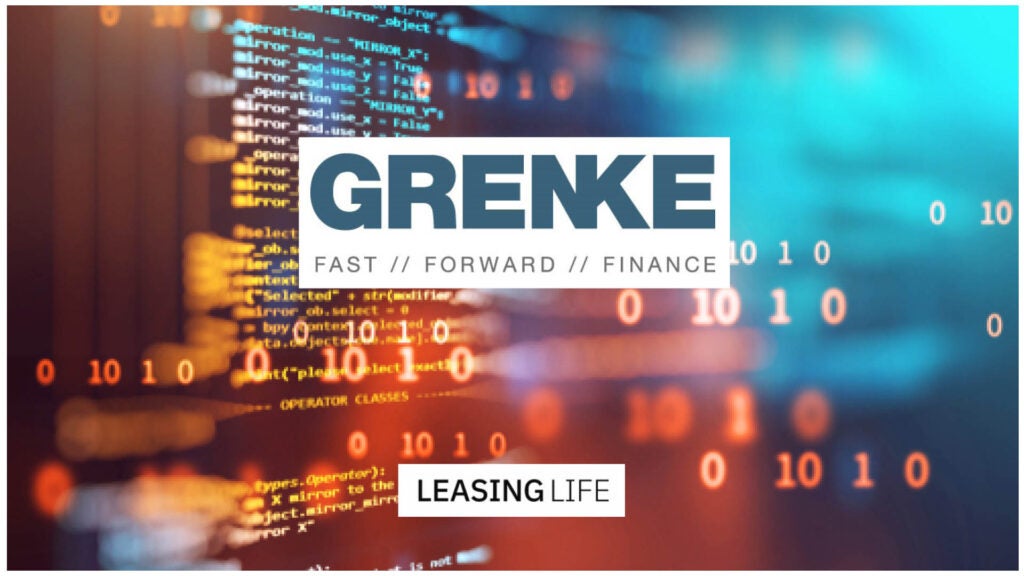
Grenke AG, the German SME leasing company, has issued an interim status report about the ongoing special audit by auditors Mazars, under the authority of the German Federal Financial Supervisory Authority (BaFin).
The board of directors and the supervisory board of Grenke AG had requested a respective written interim report from BaFin about the current status of the ongoing audit.
BaFin has not yet made a final assessment of the findings raised by Mazars.
Summary
According to Mazars’ interim report, no findings have been made that cast doubt on the legal validity and economic substance of the lease contracts with outstanding receivables of around €5.6bn.
According to the report, the allegation of money laundering has also not been confirmed. Generally, there is no systematic need for goodwill impairments on acquired franchises. According to the report, the valuations are justifiable despite methodological deficiencies.
In addition to the exonerating statements, Mazars’ report also contains significant points of criticism.
How well do you really know your competitors?
Access the most comprehensive Company Profiles on the market, powered by GlobalData. Save hours of research. Gain competitive edge.

Thank you!
Your download email will arrive shortly
Not ready to buy yet? Download a free sample
We are confident about the unique quality of our Company Profiles. However, we want you to make the most beneficial decision for your business, so we offer a free sample that you can download by submitting the below form
By GlobalDataFor example, Mazars considers it necessary to consolidate the franchise companies. The report also criticised the failure to disclose related parties in previous annual financial statements, the procedure of parts of Grenke Bank’s customer lending business, and the money laundering prevention process. The report also contains the already known findings in the areas of internal audit and compliance.
Grenke AG has already responded in the past weeks and months to material findings from the ongoing audits.
Meanwhile, Grenke has started to make relevant further improvements in its internal processes, expanded its Board of Directors to include a chief risk officer, and structured departmental responsibility more clearly, among other things. Following the resignation of Mark Kindermann from the board of directors, the supervisory board intends to strengthen the Board of Directors.
Grenke AG chief operating officer resigns from board of directors
Already in October last year, the board of directors announced its intention to terminate the franchise model and integrate the franchise companies into the Group. With the planned takeover of the franchise companies under company law, the company will terminate all business relations with CTP Handels- und Beteiligungs GmbH and the other financial investors.
Antje Leminsky, chair of the board of directors of Grenke AG, said: “Our business model is intact. We are extremely good at dealing with our customers and resellers and will now further develop our internal processes with the same ambition.”
The following detailed information from Mazars represents an interim status. The final report on the commissioned special audit is still pending.
No indications of money laundering
According to Mazars, the allegation of money laundering has not been confirmed. Mazars thus confirms the interim results of the ongoing audit by the auditing firm KPMG, which Grenke had reported on in December 2020.
However, Mazars considers Grenke AG’s internal control measures regarding money laundering prevention to be not effective in certain areas and that the material and personnel resources of the money laundering officer show substantial deficiencies.
No doubts as to the existence of the leasing business
According to Mazars, there are no doubts as to the existence of the leasing business, which constitutes Grenke’s core business with leasing receivables of €5.6bn. This finding also confirms the interim results of the ongoing KPMG audit from December 2020.
In connection with the lease receivables, Mazars also reviewed Grenke’s due diligence on resellers. Grenke currently works with around 36,000 resellers who broker the leasing relationship with the end customer. Mazars identified weaknesses in the internal audit system. According to Grenke, these findings need to be reviewed. Mazars has found no evidence to support the allegation of systematic fraud by resellers.
Goodwill essentially recoverable
Mazars confirms that no systematic errors were made in testing the recoverability of goodwill on franchises already acquired. Despite methodological deficits, the valuations of goodwill are considered justifiable in individual cases. When valuing the former franchisees at the time of the acquisition, there were both upward and downward deviations from the originally agreed purchase price mechanism. The purchase prices were not systematically overstated.
Warth & Klein Grant Thornton (WKGT) had already referred to the purchase price deviations in its expert opinion in December 2020, but had come to the conclusion that the acquisitions of the 17 franchise companies can be described as positive overall for Grenke AG.
In this context, Mazars criticizes the returns of CTP and the other financial investors ex-post as excessive. Mazars concludes this from an analysis of the top 10 acquisitions by the amount of goodwill. Mazars points out that for the franchise investments between 2003 and 2018, paybacks of €62.6m compared to investments of €7.2m occurred. Franchise companies not acquired in the past accounted for losses of €6.5m, which are not included in the €62.6m.
Reassessment in the accounting of the franchise business
A significant point of criticism by Mazars concerns the accounting of the franchise companies.
Mazars is of the opinion that these should have been consolidated in the consolidated financial statements as soon as they were established.
Based on this assessment, the board of directors, after consultation with the auditor KPMG, has reassessed the accounting treatment of the franchise business. Upon consideration of all available information, the Company believes there is greater evidence suggesting that the franchise companies should have been consolidated in the consolidated financial statements as soon as they were established, irrespective of the ownership structures, due to de facto control in accordance with IFRS 10.
Due to this reassessment, the comparative figures for 2019 are also corrected and presented in the consolidated financial statements for 2020. The consolidated financial statements of the previous years remain unaffected.
The retroactive full consolidation leads to a change in the depiction of company acquisitions, notably exclusively in the consolidated financial statements according to IFRS. This has no effect on the Group’s cash flow. No goodwill is shown in the consolidated Group’s balance sheet for the franchises acquired after December 31, 2012, and thus since IFRS 10 came into effect. The acquisitions are accounted for directly in equity. Equity is reduced by around €90m compared with what has previously been shown.
According to preliminary calculations, the balance sheet equity ratio is close to 16 per cent, which corresponds to the Group’s target level. However, this effect is largely neutral for the calculation of the regulatory equity ratio, as the regulatory equity is always adjusted for intangible assets such as goodwill.
As a result of the consolidation of the franchise companies, Mazars’ comment that an impairment loss of approximately €8m would have had to be recognised for the former franchise company in Croatia as early as December 31, 2019 is obsolete. As no goodwill is recognised in the balance sheet for the company in Croatia under the new accounting treatment, no impairment losses are required.
The full consolidation of the franchise companies would have had nearly no impact on earnings in the fiscal year 2019. However, it will have a positive impact on earnings in 2020 due to the absence of goodwill amortisation.
Related parties included in the notes
Mazars has criticised that Corina Stingaciu was not identified as a related party in the group accounting, although the relationship with Wolfgang Grenke appeared to be known within the Grenke Group. According to now available information, Grenke lists her and the entities controlled by her as related parties in the 2020 annual financial statements and will also provide this information for the previous year as a precautionary measure. This does not have any impact on the figures.
Findings in Grenke Bank’s customer lending business
The Mazars report lists several deficiencies at the subsidiary Grenke Bank. These include violations of the minimum requirements for risk management (MaRisk), which relate to complaints in the customer lending business. Specifically, a number of granted loans were mentioned in which either no or insufficient collateral was provided or the borrower’s ability to service the loan was not sufficiently verified.
Essentially, these relate to loans to small and medium-sized enterprises with a volume of around €37m, which is a very small proportion of the Group’s total assets of more than €7b. Moreover, the bank had already stopped accepting any further new business since spring 2020 due to the Corona pandemic and has now decided to discontinue this lending business. Mazars classifies the deficiencies as serious. This also applies to the bank’s money-laundering prevention, which Mazars assesses as not fully compliant with legal rules. However, Mazars has no evidence that Grenke Bank has systematically and actively promoted money laundering.
Grenke takes the aforementioned critical points very seriously. Among other things, the company plans to quickly and comprehensively revise the instruments and processes for lending and money-laundering prevention and to strengthen Grenke Bank’s board of directors.
Calculation of risk provisions
Another finding by Mazars concerns the methodology for calculating risk provisions in accordance with the IFRS 9 accounting standard. Model and documentation weaknesses are identified. With regard to the model, Mazars finds, among other things, that Grenke has not yet taken into account macroeconomic factors. Grenke AG continues to use its model-based approaches derived from statistical methods but has expanded them in line with the standard, without causing significant changes in the estimates of the number of risk provisions.
Findings on the internal control system, internal audit and compliance
The Mazars report also contains findings on missing or ineffective process-dependent controls in the internal control system as well as severe findings on the internal audit and compliance organization. The latter two largely coincide with the criticisms made by BaFin, about which Grenke had provided detailed information in the letter from the chairman of the supervisory board dated February 8, 2021, and which had led to the resignation of the board of directors member Mark Kindermann. The board of directors has begun to significantly develop the internal control system on the basis of these findings.
Earnings forecast for the fiscal year 2020
Grenke expects an after-tax result in the upper double-digit million range for the fiscal year 2020. The balance sheet equity ratio as of December 31, 2020 was around 16 per cent. The company has net liquidity of €1.29bn as of February 22, 2021.
Sebastian Hirsch, CFO of Grenke AG, said, “We have been turned upside down. We have changed many things and we will implement further improvements. What remains is substance, profitability and a strong equity base.”
Outlook
The time-consuming audits in particular were the primary cause for significant delays and the reason it has not yet been possible to set a corporate calendar for 2021.
The audit opinion with regard to the consolidated financial statements is expected in the second quarter of 2021. KPMG will report the final results of the audit as of December 31, 2020 in the audit report and in the auditor’s opinion.
The board of directors remains in very close and constructive contact with the auditing company KPMG for the normal audit of the annual financial statements and with the other auditing companies in the context of the ongoing special audits.
Isabel Rösler, who has been a member of the board of directors since January 2021, is responsible for coordination with BaFin and monitors the implementation of the measures decided on the basis of the audit results. On the supervisory board, Jens Rönnberg has assumed this role as interim deputy chairman of the supervisory board, who joined Grenke in November 2019.






